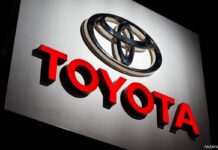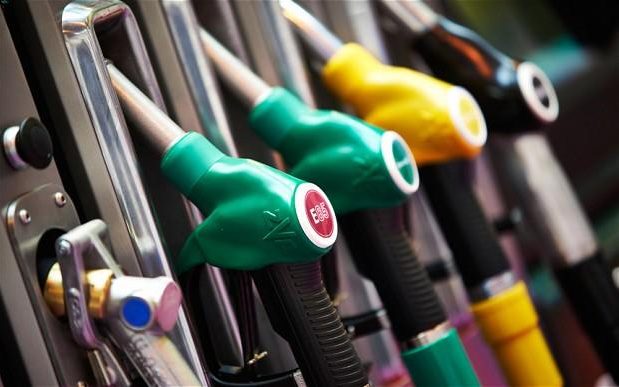ISLAMABAD: The government has so far deferred the decision to give a free hand to oil marketing companies (OMCs) and petroleum dealers in fixing margins on the sale of high-speed diesel (HSD) for only a month’s time, it was learnt.
Official sources in Finance Ministry on condition of anonymity informed that the government has postponed the enforcement of deregulation of OMCs and dealers’ margin in fixing margins on the sale of HSD for a month’s time apparently to save the national exchequer from possible loss worth in billion rupees under the head GST. They said Prime Minister Shahid Khaqan Abbasi has directed the authorities concerned including petroleum division and the Federal Board of Revenue (FBR) etc to devise a mechanism for the collection of GST from the OMCs and the dealers on the sale of diesel, which is mainly used in transport, agricultural and power sectors. “From next month, the GST on petroleum products will be fixed in rupees per litre instead of its collection ranging between 17 to 31 per cent on the sale of petroleum products,” said sources.
According to Oil Companies Advisory Council (OCAC), Pakistan consumes 600,000 tons of high-speed diesel per month whereas petrol demand stands at 550,000 tons per month. Consumption of petrol is increasing by 20 per cent every year after compressed natural gas (CNG) filling stations switched to imported liquefied natural gas (LNG) from domestically produced gas.
Earlier, during the first week of last month of October, a meeting of the economic coordination committee (ECC) of the federal cabinet held under PM Shahid Khaqan Abbasi in the chair had approved a proposal for deregulating the margins on diesel sale under the policy of liberalisation and deregulation despite strong opposition and concerns raised by Finance, Planning Commission, OGRA and FBR. ECC also decided that OMCs would introduce fuel marking in diesel at the depot stage in the next six months to avoid adulteration and OGRA would establish a mechanism to monitor the commercial stock position of the OMCs, inventory system of the dealers and the fuel marking system.
The sources also said that with effect to the approval of deregulation of OMCs and dealers margin on high-speed diesel (HSD) by the government, people across the country were expected to find the price of diesel vary from pump to pump during the current month of November. And, national exchequer was estimated to face an additional burden of Rs 30 to Rs 40 billion annually with effect to deregulation of OMCs and dealers margin on petroleum diesel. However, the government has so far deferred the decision for a month only, said sources.
“This decision of deregulation of margin on HSD will annually cause the additional burden of around Rs 30 billion on national exchequer and Rs 40 billion on the already over-burdened innocent masses,” said sources, adding, that HSD fuel is mainly used in transportation, agriculture, power and government sectors. Change in the pricing policy of HSD shall have a far-reaching impact on the economy and the public.
Copies of official documents available with Pakistan Today disclose that the government was all set to end the mechanism of uniform price of petrol in the country after three months as the process has been initiated in this regard.
“Although due to deregulation of margins on HSD, the price of HSD would vary from pump to pump across the country, however, it is expected that people would prefer to buy from the filling station offering cheaper and efficient product,” said documents.
Documents available with this scribe also made a surprising disclosure about the stance of ministries of finance and planning, FBR and Oil and Gas Regulatory authority (OGRA) regarding the deregulation of margin on HSD. They all informed the Economic Coordination Committee (ECC) of the Cabinet held on September 26, 2017, that there was no need to end the uniform pricing system of HSD. These ministries and authorities (FBR & OGRA) highlighted the possibility of cartelisation, high profits being earned by OMCS, and absence of downstream oil policy.
OGRA, a staunch opponent of deregulation of margin on HSD said that the oil industry has declared very robust profits in recent years. Deregulation of margin may only add to the company profits at the expense of the consumers. The oil-giant PSO (Pakistan State Oil) and six other OMCs are earning attractive profits from their businesses as last year they have earned over Rs 33 billion heavy profit. It is our considered view that the best approach is to ask the industry to deliver enhanced 30 days stock cover and online inventory system, followed by incentives, said OGRA.
“It is our opinion that the dealers will cartelise at the district/city level and will fix retail prices at the expense of the consumers,” OGRA said.
It is to note here that earlier there was a mechanism to collect GST from OMCs and dealers. But, with an end to uniform pricing mechanism, OMCs and dealers are feared to save the GST in their pockets. More, IFEM (Inland Freight Equalisation Margin) is the system through which the petroleum prices of MS, HSD and LDO (light Diesel Oil) & SKO (kerosene) are kept uniform at the 22 oil storage depots of the country. And, OMCs receive an amount for the supply of petroleum products to all parts of the country to keep so that a uniform price mechanism functional/effective.
It is worth mentioning that the OMCs and dealers margins on MS (Petrol) and HSD (Diesel) are revised annually under-regulated environment based on the consumer price index (CPI) as approved by ECC on October 30, 2014.
Though the uniform price mechanism has come to an end with effect to the government decision, however, OMCs will keep receiving Rs 3 billion monthly in the name of keeping the prices of petroleum products at a uniform/similar level. More, in the past, such incentives have not remained successful as planned i.e. deemed duty (7.50 per cent) for refinery up-gradation in 2002 is a recent example in which the incentives were provided before the up-gradation. Furthermore, the price of high octane blended component (HOBC) was deregulated during last year mainly because of the support of the then petroleum minister Shahid Khaqan Abbasi. And, after the deregulation of HOBC price, the OMCs increased their profit by Rs 12 per litre.
























